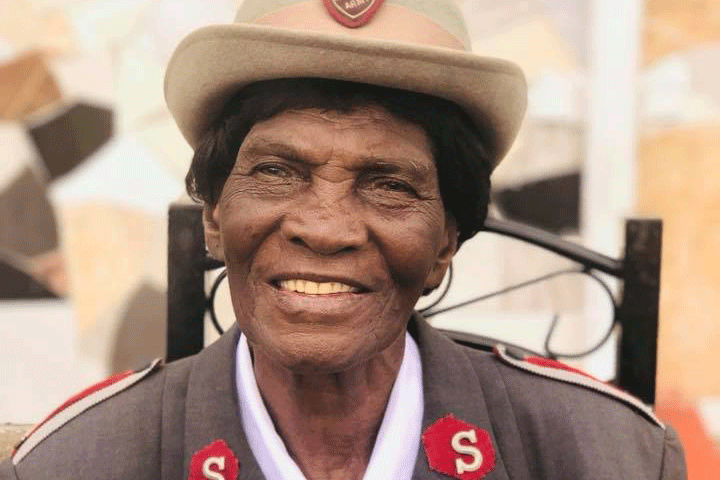
Letter from America:with KENNETH MUFUKA
Our instructions as writers are very clear. Christmas time, where possible, is a time to celebrate the birth of Jesus Christ, and to pass the good news about goodwill towards all men. I have students in Japan and in India, and they too, in those non-Christian countries, have accepted the message of goodwill towards all men.
So, it comes about that Americans are the most generous people on earth, with the possible exception, of course, of my mother’s tribe, People of the Rain Bird, the Hungwe people.
Many years ago, I was visiting my daughter, Lois Martin, in Pittsburgh, Pennsylvania. We were gathered in honour of the women of Bethlehem Haven, a shelter for women in distress.
Thirty seven years ago, United Church of Christ pastor, the Reverend Peter Weaver, and church elders were meeting on Christmas Eve to put final touches to celebrations the following day. It was late in the evening and it was snowing outside. As they left the church, they saw a “bunch of homeless people” pulling and sharing blankets under the culvert-like steps of the Presbyterian steps.
We need not mention that these Christian pastors and the homeless belonged to marginalised races. To cut a long story short, a few years later, the pastors brought my daughter, Lois, who has a natural empathy for those less fortunate than us, to bring a fledgling Bethlehem Haven to what it is today.
Realising that homelessness is predicated on very shaky foundations, Lois set about a comprehensive scheme, returning the women to school, learning a trade, restoring their bodies from drug addictions and, the most difficult of all, the restoration of the Holy Spirit in each one of them, which alone restored their human dignity and worth.
After a decade of service, Lois moved on to bigger responsibilities, but the foundations remain. Bethlehem Haven projects the face of Christmas as a model for comprehensive inter-denominational care for women.
- Chamisa under fire over US$120K donation
- Mavhunga puts DeMbare into Chibuku quarterfinals
- Pension funds bet on Cabora Bassa oilfields
- Councils defy govt fire tender directive
Keep Reading
Americans seem to understand the meaning of grace intuitively. As Christmas draws near, every organisation in my home town meets to choose some less fortunate in their neighbourhood.
I attended a non-denominational Sunday worship service organised by people called Emerge.
Judging by their attire — blue jeans, crocs for shoes and lots of cheap silver trinkets around their necks and forearms — one could see that they had been roughed up by society. The Reverend Terry Jones quickly got to the message of the day.
We had gathered to pray and bless the 140 Christmas cards which were to be sent to children whose fathers (sometimes mothers) were in a lock-up (American for jail). The juicy part is that there was a hefty cash emolument inside each envelope which was bound to cheer up the kids.
None of us knew the kids personally, but we had received their names from prison officials. Zoria, a nine-year black girl, whose father was in a lock-up, made a powerful prayer.
“Lord, keep my daddy safe in that jailhouse so that he can come back to my sister Noria, my mother and I. We miss him.” She prayed. And all the saints were moved with the Holy Spirit as we immediately surrounded the child and laid our hands on her.
My thoughts, however, this Christmas, are towards my mother, Mbuya Elsie Mufuka, born of the People of the Rain bird (the Hungwe), who has turned 100 years old this week.
There was a time when my family went through excruciating poverty and were it not for the saints, I have no idea whether we could have weathered the storm.
The Hindu call that a bridge. Before one discovers his land of milk and honey, one must cross the Jordan River.
Every year I visit Zimbabwe, my mother reminds me of the saints who lifted their hands in our favour; I was the least deserving since I was the naughtiest of all the pastor’s children.
The honours were well in the future. The Commonwealth Scholarship came later, the Reuters International Award (twice) was in the future, an American professorship (full rank) was only a dream then and an invitation from the British Royal African Society (twice) was unthinkable then.
I say this not to boast, but to emphasise that without those who provided the bridge, none of these blessings would have come my way.
Now, the reader will say: “Ken, what is the point?”
You know what the Lord requires of thee, you sluggard, to do justly, and to love mercy, and to walk humbly with thy God. My mother makes sure I go by and give thanks. We have an obligation to provide bridges for others. Religious people call it an imperative. It is a command.
My mother introduces me to loved ones: “Ndiye mambara wenyu uya, muchamuziva? Ko ndiye Kenny ka!”
There is no knowing what a little good can do. This brings me to my last point. It came as a shock that somebody, somewhere, approved the destruction of Budiriro Housing Project during the Christmas season. The image of a woman hanging on to a bulldozer as her house is destroyed is doing the rounds in foreign embassies.
That woman is one of us, she is a Zimbabwean. This is a season to spread goodwill towards all men. Merry Christmas! Peace.
l Ken Mufuka is a Zimbabwean patriot. He can be reached at [email protected]. His books are available at INNOV Bookshops in Zimbabwe.











